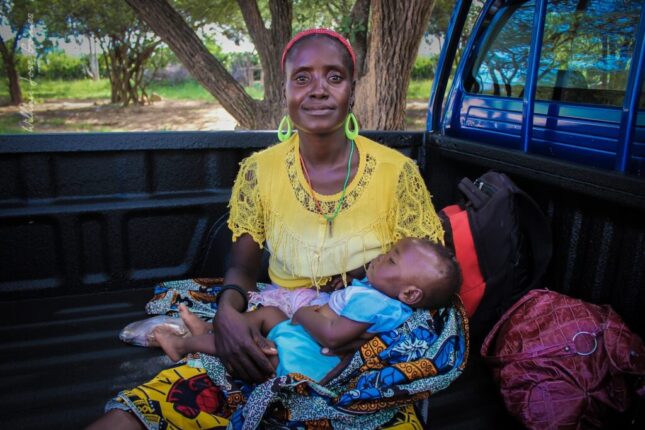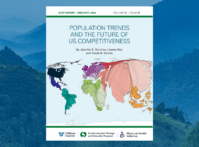-
Obstetric Violence in Sub-Saharan Africa: The Struggle for Dignified Maternal Care
December 4, 2024 By Prudence Mutiso
In August 2013, Josephine Majani, a mother of three from Bungoma County in Kenya, endured a harrowing birth experience. Despite her repeated pleas for help during labor, the nurses in the hospital ignored her. She struggled to walk to the labor ward while in intense pain, but all of its beds were occupied. Majani was forced to give birth on the cold concrete floor. Subsequently, nurses there subjected her to verbal and physical abuse—even making her carry her placenta back to the labor ward.
After this shocking ordeal, Majani sought justice in the High Court of Kenya. Her case finally concluded in February 2024, when Kenya’s Court of Appeal affirmed an earlier favorable High Court decision—six years after the initial determination and eleven years after the actual abuse.
Majani’s case sheds light on obstetric violence, which is a pervasive yet underreported issue in maternal healthcare across Sub-Saharan Africa. Her story also raises urgent questions about the systemic issues that allow such mistreatment to continue unchecked in Kenya and elsewhere.
A Silent Epidemic
The United Nations Special Rapporteur on Violence against Women has defined obstetric violence as the mistreatment that women face during childbirth: including verbal and physical abuse, actual neglect, non-consensual medical procedures, and unlawful detention in hospitals due to unpaid medical fees. It is a form of gender-based violence that violates women’s rights to health, dignity, autonomy and freedom from torture, cruel, degrading and inhumane treatment.
Yet despite its prevalence, obstetric violence remains largely underreported—making it a silent epidemic. The dearth of data on this issue, even on a global scale, limits the understanding of its full scope. Most statistics are derived from only a few countries, and Sub-Saharan Africa faces significant gaps in data collection.
What figures do exist are startling. In Kenya, 20% of women report mistreatment during childbirth, with similar high rates found in Tanzania, Ghana, Nigeria and Ethiopia. However, these figures only capture part of the picture, as countries without comprehensive data are likely facing similar or worse rates of abuse. Addressing obstetric violence requires coordinated efforts—including not just healthcare reforms, but increased funding for research to better understand its prevalence and identify country-specific solutions.
Abuse and Neglect in Kenya, Uganda, and Nigeria
Despite Kenya’s Linda Mama initiative (which offers free maternity services), its public hospitals remain underfunded, understaffed, and overburdened. Research indicates that roughly one-third of adolescent mothers experienced abuse or stigma from healthcare providers, with 10% reporting neglect during childbirth. Majani’s February 2024 victory in court, while significant, demonstrates the systemic challenges that persist.
Kenya’s failure to fully implement Article 43(1)(a) of the Constitution (which guarantees the right to the highest attainable standard of health) as well as the Maputo Protocol highlights significant gaps in human rights protection. The protocol guarantees both the right to health and dignity for women. This ongoing abuse reveals shortcomings in the implementation of these critical human rights standards, leaving many women vulnerable to continuing violations.
Uganda is also facing challenges. Post-delivery detention in that nation remains a prevalent form of obstetric violence, where women unable to pay medical fees after childbirth are unlawfully detained in hospitals. Ongoing legal cases have brought attention to this widespread practice, which violates international human rights standards. With a maternal mortality rate of 375 deaths per 100,000 live births, these challenges are compounded by limited access to maternal healthcare, especially in rural areas. Despite ratifying key international human rights instruments, Uganda continues to struggle with enforcing its commitments, leaving women vulnerable to mistreatment.
In Nigeria, obstetric violence is exacerbated by the underfunding of healthcare systems. In 2024, Nigeria allocated just 4.47% of its national budget to health, well below the 15% target set by the Abuja Declaration. Additionally, the African Commission on Human and Peoples’ Rights addressed the country’s maternal health challenges (which have contributed to high maternal mortality rates and widespread mistreatment during childbirth) in a decision issued in May 2024. While the decision acknowledged the gravity of the crisis, there remains an opportunity to further align these efforts with international human rights standards, ensuring that women’s rights to health, dignity, and respectful care are fully upheld .
Systemic Drivers of Obstetric Violence
The persistence of obstetric violence across Sub-Saharan Africa is a result of intersecting systemic challenges that remain unaddressed. At the core are insufficient accountability mechanisms that allow mistreatment to go unchecked and unpunished. This lack of oversight is compounded by ingrained societal norms that marginalize vulnerable women, particularly those from poor or rural communities. Addressing these structural issues requires healthcare systems to implement human rights-based protocols that enforce accountability and prioritize respectful care, turning broad human rights commitments into tangible protections.
Tackling obstetric violence also requires a multifaced approach. First, ombudsman systems should be introduced in hospitals to provide women with a transparent, impartial avenue for reporting mistreatment. This model has proven effective in countries like Malawi and could be adopted in Kenya, Uganda, and Nigeria. Strategic legal advocacy also plays a crucial role in setting legal precedents, as seen in the case brought by Majani. Seeking justice in court can compel governments to address these violations and create systemic changes.
The battle against obstetric violence demands more than legal reforms, however. It requires comprehensive research supported by adequate funding. Governments and international bodies must prioritize funding to gather accurate data, allowing for the creation of targeted policies that address the specific challenges women face in different regions.
Finally, for sustainable reform, countries like Kenya, Uganda, and Nigeria must fully enforce international and regional standards. This includes increasing healthcare budgets to ensure sufficient staffing, resources, and infrastructure in maternal care services. Furthermore, healthcare workers must undergo mandatory training on respectful and dignified maternity care, to curb healthcare workers abuse of power and ensure adherence to human rights standards.
Prudence Mutiso is Senior Legal Advisor for the Africa -Center for Reproductive Rights
Sources: African Union, BMJ Journal, British Broadcasting Corporation, Center for Social Justice, Deutsche Welle, Frontiers Journal, Kenya Law, Merriam-Webster, Nation, Ombudsman Malawi, Open Law Africa, Standard Media, The Guardian, The Star, United Nations, World Health Organization.
Photo Credit: An unidentified woman and baby. Used with permission courtesy of WJ Gomes.
 A Publication of the Stimson Center.
A Publication of the Stimson Center.







